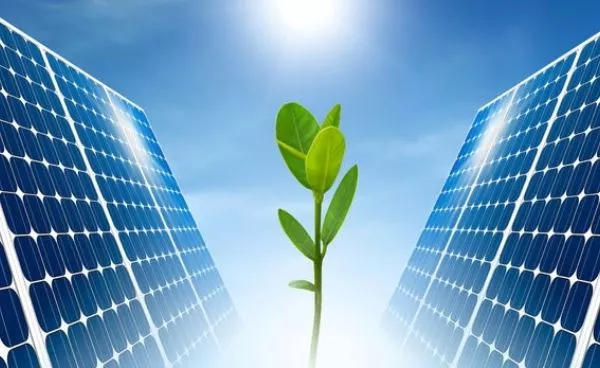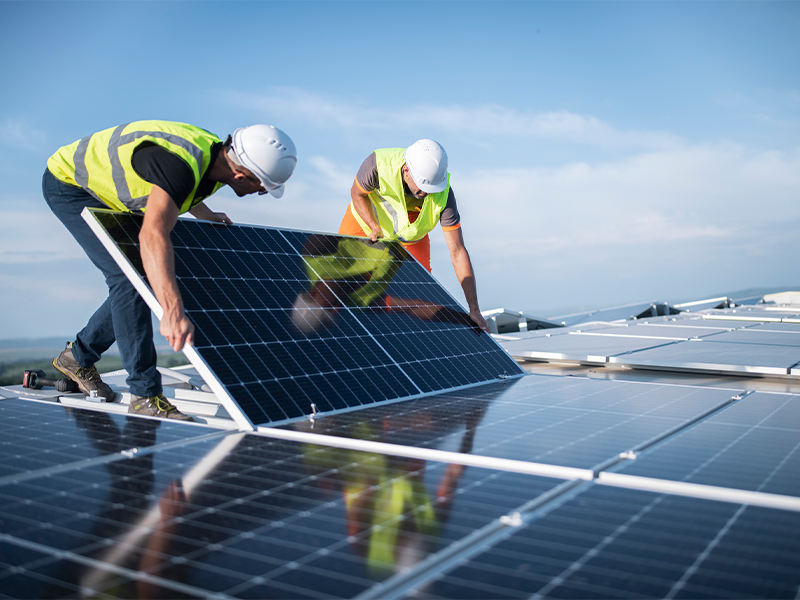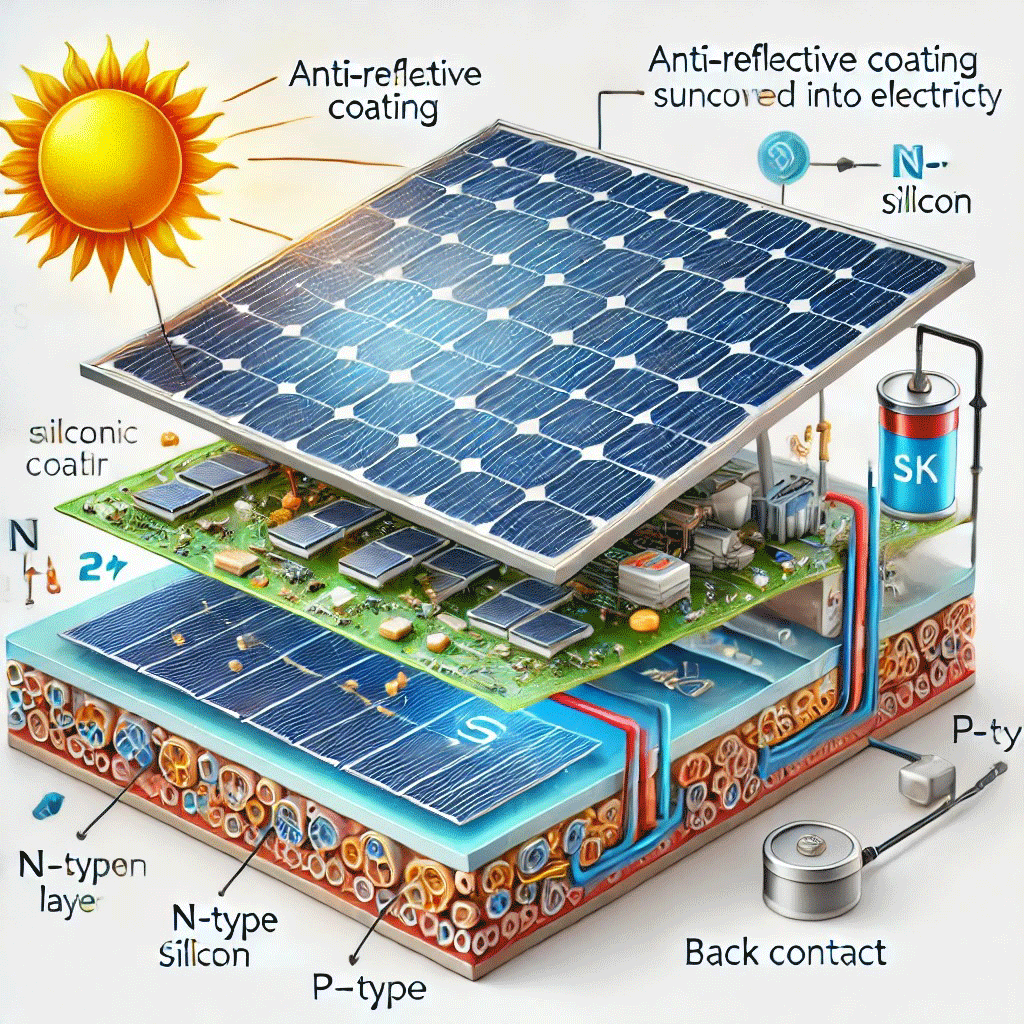Find Out About Simply Solar Illinois for Cost-Effective Renewable Energy
Solar Energy 101: A Novice's Guide to Sustainable Power Solutions
As the globe progressively shifts in the direction of lasting energy solutions, recognizing the fundamentals of solar energy ends up being necessary for both individuals and businesses. This overview offers an extensive review of solar power, detailing the numerous systems offered and the mechanisms behind their procedure. By exploring the benefits of solar technology, together with the financial motivations and installation procedures, one can acquire a more clear point of view on exactly how to successfully integrate this sustainable resource into their power strategy. Nonetheless, the journey towards adopting solar energy welcomes additional examination of the obstacles and considerations that feature it.
Comprehending Solar Energy
At its core, understanding solar power entails grasping the fundamental principles of just how sunshine can be converted into usable electricity. Solar energy is derived from the sunlight's radiation, which can be taken advantage of with various technologies.

Recognizing solar power additionally entails identifying its environmental benefits. By using sunlight, we can alleviate greenhouse gas emissions and decrease air contamination, adding to a more sustainable future. The developments in innovation and efficiency of solar systems proceed to enhance their viability, making solar power an increasingly attractive option for global power needs.
Kinds Of Solar Energy Solutions
Various types of solar energy systems are frequently employed to harness solar power for electrical energy generation. The primary categories include photovoltaic (PV) systems, focusing solar power (CSP) systems, and solar thermal systems.
Photovoltaic or pv systems use solar panels made up of silicon cells that convert sunlight straight into electricity. These systems are flexible and can be installed on roofs, ground mounts, or integrated right into structure materials.
Focusing Solar Power systems, on the other hand, use mirrors or lenses to concentrate sunshine onto a small location, generating warm that drives a steam wind turbine to produce electrical energy - Simply Solar Illinois. CSP systems are usually released in large-scale power plants and require straight sunlight, making them less ideal for cloudy areas

Each type of solar power system has its one-of-a-kind attributes, applications, and suitability relying on geographical place, energy demands, and budget plan, making it important to review choices based on certain situations. - Simply Solar Illinois

Advantages of Solar Power
Harnessing solar energy via different systems not only supplies a sustainable way to generate electrical power but also provides a wide variety of advantages. One of the most significant benefits is the decrease in greenhouse gas discharges, adding to a cleaner atmosphere and combating environment adjustment. Solar energy is eco-friendly, implying it is infinite go to these guys and offered as long as the sunlight beams, unlike fossil gas, which are limited and depleting.
Additionally, solar power can cause considerable cost financial savings gradually. House owners and organizations can minimize their electricity costs substantially, and in most cases, they might make credit scores for excess energy created through internet metering. Furthermore, the solar industry produces tasks, from producing to installment, promoting local economic climates.
Another engaging benefit is power self-reliance. By generating their very own electrical power, people and neighborhoods can lower reliance on exterior energy resources, boosting resilience against fluctuating energy rates and supply disruptions. Solar energy systems need minimal maintenance, making them a hassle-free option for sustainable power generation.
Installment Process Introduction
The installation procedure for solar power systems generally includes numerous key steps that make sure efficient integration into a property. An extensive website evaluation is carried out to examine the roof covering's orientation, shielding, and structural integrity, which are discover this info here essential to enhancing solar panel performance. Following this evaluation, the style stage begins, where a tailored solar energy system is configured based on the house owner's energy requirements and preferences.
When the style is finalized, the necessary permits and approvals are gotten from neighborhood authorities, making certain conformity with laws. The actual installment includes installing the solar panels on the roof or ground, connecting them to an inverter, and incorporating the system with the residential or commercial property's electric setup. This phase might additionally include mounting battery storage space systems, relying on the style.
After setup, a detailed examination is performed to confirm the system's functionality and safety and security. The system is commissioned, and home owners are informed on its operation and upkeep. With the installation full, the solar energy system can start producing renewable power, adding to sustainability and lowering energy prices. This organized method ensures that planetary systems are both efficient and reliable, optimizing their long-term benefits.
Financial Rewards and Financial Savings
Checking out the economic incentives and cost savings connected with solar power systems can significantly improve the allure of making the switch to renewable resource. Numerous rewards exist at government, state, and regional degrees, made to decrease the preliminary prices related to solar installation. One of the most significant incentives is the federal solar tax credit, which permits homeowners to deduct a portion of their solar system installment costs from their government taxes. As of 2023, this Full Article debt stands at 30%, offering substantial cost savings.
In addition to tax obligation debts, several states provide rebates that can further decrease ahead of time costs. Some utility companies additionally offer performance-based incentives, rewarding solar power manufacturing with time. Funding alternatives, such as solar loans and leases, enable consumers to mount systems with little to no deposit, making solar power more obtainable.

In addition, solar systems can raise residential or commercial property values, offering a solid return on financial investment. Overall, the combination of incentives and savings makes solar energy a financially eye-catching selection for several houses.
Conclusion
In verdict, solar power represents a vital part of sustainable power services, offering a path towards decreased carbon impacts and boosted environmental protection. Ultimately, the change to solar power not only promotes ecological obligation but likewise promotes economic savings and power self-reliance.